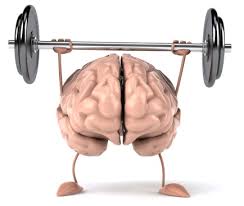The Importance Of Mental Resilience
According to psychiatrists, the quality most likely to ensure good mental health, a sense of wellbeing, and the ability to cope equably with the blows dealt us by life is not courage, or positivity, or even self-belief. Instead, it is something which, while combining elements of all of these things, nonetheless exists as a broad quality in its own right. Generally, it is termed âmental resilienceâ. While the precise definition of what constitutes âmental resilienceâ is currently really quite varied and nebulous, we all undoubtedly have some concept of what it means. Itâs fortitude, inner strength, the ability to keep going and get through it, however scared, alone, or miserable you may be feeling. But what creates mental resilience? And how can we harness it for ourselves?
Mental Resilience
Itâs hard to define precisely what makes a âmentally resilientâ person. Mental resilience is what causes some to forge on through grim circumstances while others have breakdowns, or give up. Itâs not born of a lack of feeling – one canât be âresilientâ against something which one does not experience in the first place. Itâs not callousness, and nor is it bravery, precisely. Itâs the ability to maintain oneâs integrity, sense of identity, sense of purpose, and determination to survive throughout all – but without simultaneously disconnecting from oneâs own emotions, or those of others. Mental resilience is putting a positive spin on things, without losing touch with the realities of your situation. Mental resilience is knuckling on down and striving through the hard times, without disconnecting from your emotions, or the emotions of those around you. Mental resilience is dealing with discomfort, without being âtoughâ for the sake of âtoughnessâ. Itâs roughly what Rudyard Kipling was talking about in his famous poem âIfâ, and itâs certainly not as simple as it seems at first glance. However, for those which can develop mental resilience, itâs more than worth doing. Mental resilience is associated with not only good mental health, but with fulfilling human relationships, and an enhanced sense of general wellbeing within oneâs life as a whole. Something we could all do with in this hectic modern world!
Developing Mental Resilience
Letâs be clear about something: there is nobody on the planet with perfect mental resilience. Some are more resilient generally than others, due largely to the circumstances in which they grew up, their life experiences, and the position in which they now find themselves. However, everyone has their âtriggerâ, and even the most resilient person in the world could be brought low under the right circumstances. So a lack of resilience is not a âweaknessâ – itâs simply an unfortunate result of your own personal circumstances, history, and psyche. There are many tactics which one can employ to enhance oneâs mental resilience, but there are always going to be times when that resilience breaks down. In such cases, donât give up – keep trying! The ability to persevere in itself is a big part of what gives someone mental resilience in the first place. If you wish to develop mental resilience, try working on these tips:
· Each night, think of five things which have happened in the day for which you are grateful. This will help you to frame your life in a positive manner which is nonetheless grounded in reality.
· Think positive – but donât build castles in the air. Frame reality in a positive manner, without drifting off into a happy fantasy land.
· Develop self-awareness. This does not mean critically analysing every aspect of your life, it means gaining a greater understanding of who you are, what you respond well to, what you respond poorly to, and gaining a greater comprehension of your own truths, strengths, and weaknesses from this. Should you find âfaultsâ during this process – donât self-loathe. Forgive yourself, accept that you arenât what you thought you were, and integrate your reality with your self-perception in a positive manner.
· Work towards specific and established goals.
· Donât be competitive. Work towards your own values and goals, not anyone elseâs. Similarly, judge yourself according to your own inner standards rather than trying to attain goals which do not correspond with your own values. Stay true to yourself, and ignore the âcompetitionâ!
· Be stoic in the face of discomfort, if that discomfort helps you to achieve something needful. Do not seek discomfort to prove your âtoughnessâ, nor avoid it at all costs. Tolerate it when it happens, if seeing it through will ultimately help you or your loved ones out.
Self-Sabotage
Mental resilience is not an easy thing to develop, and weâll all experience setbacks. However, you can reduce the chances of setbacks occurring by avoiding the following:
· Wallowing in self-pity. While itâs important to acknowledge your mistakes, part of that âacknowledgementâ process involves forgiving yourself and moving on. Self pity or self loathing are like acid baths for the psyche, which dissolve mental resilience with ease.
· Letting other people dictate your goals and values. Mental resilience comes from staying true to your own inner standards, which means following your own goals, and maintaining your own integrity.
· Giving up. Mental resilience is all about perseverance. While sometimes situations may require a change of tactic (or even a change of mind!), you should not reject opportunities and projects out of hand due to one failure.
· Being dictated to by your emotions. While itâs good to be in touch with our emotions, emotional reactions arenât always logical. Rather than reacting immediately to negative stimuli in an emotional manner, keep quiet and breathe deeply until you can temper that emotional reaction with logic. Then, rather than reacting, respond in a rational and measured manner.





